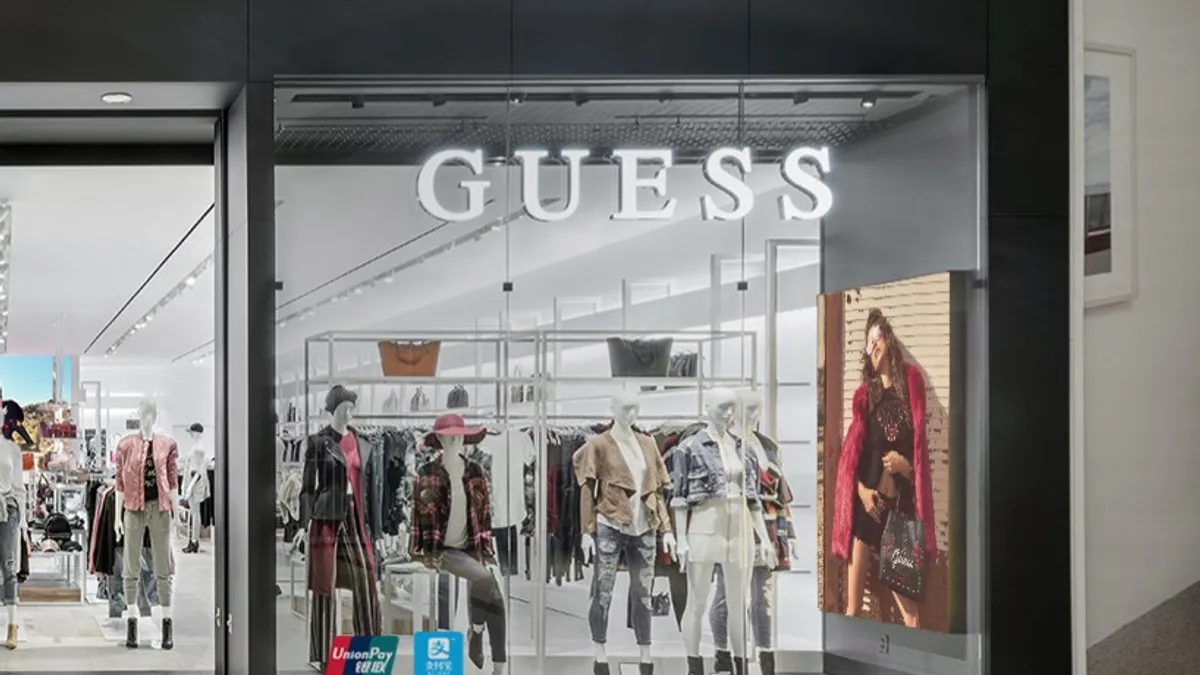Brief:
- Apparel brand and retailer Guess announced a partnership with digital payment platform Alipay that lets Chinese travelers visiting the United States use the Alipay Mobile Wallet app when making purchases at more than 50 Guess stores, according to a statement.
- Alipay’s geolocation-based "Discover" function and push notifications within the app lets Chinese travelers find nearby Guess stores, receive promotional information and make purchases. Chinese consumers tend to seek out Guess-branded products when they visit the U.S., Souheil Badran, president of Alipay Americas, said. His company seeks to ensure its users have the best shopping experience, unimpeded by language or payment barriers.
- In addition, San Francisco tourist destination PIER 39 today announced a partnership with Alipay, according to a statement. More than 40 merchants and vendors, including Blue & Gold Fleet, Bubba Gump Shrimp, Fog Harbor Fish House and the Aquarium of the Bay, will now accept payment via Alipay’s mobile wallet.
Insight:
With China leading the world in mobile payments, these partnerships with Alipay are a good way to cater to Chinese tourists who visit the United States to sightsee and shop for products that are hard to find at home. In contrast, mobile proximity payments in the U.S., which growing, are not as widely used as in China.
Guess and PIER 39 are among the American brands that have recognized the spending power of China's growing middle class. Chinese tourists are forecast to boost overseas spending to $429 billion in 2021 from $73 billion 2011, according to an estimate by CLSA. Luxury sales to Chinese tourists are estimated to reach 35% of global sales by 2020, with particular growth in gaming, cosmetics and luxury categories, CLSA found.
In another example of the growing influence of Alibaba, Alipay's parent company, Marriott today announced it is the first hospitality company to participate in Alibaba's “Tmall Super Brand Day” on July 28. Tmall is Alibaba's Chinese-language e-commerce platform for brands and retailers, with access to more than 500 million annual consumers among Alibaba's China retail marketplaces, according to a statement. Marriott in April updated its storefront on Fliggy, Alibaba's travel service app, to appeal to Chinese travelers.
The flow of Chinese tourists to the United States had been strong. While recent U.S. tourism data has been unavailable since March, when the National Travel and Tourism Office (NTTO) suspended the publication of overseas arrivals data, the number of Chinese tourists to the U.S. rose 15% to 2.97 million in 2016 from the prior year, while their spending grew 9% to $33 billion, according to the U.S. Commerce Department.














